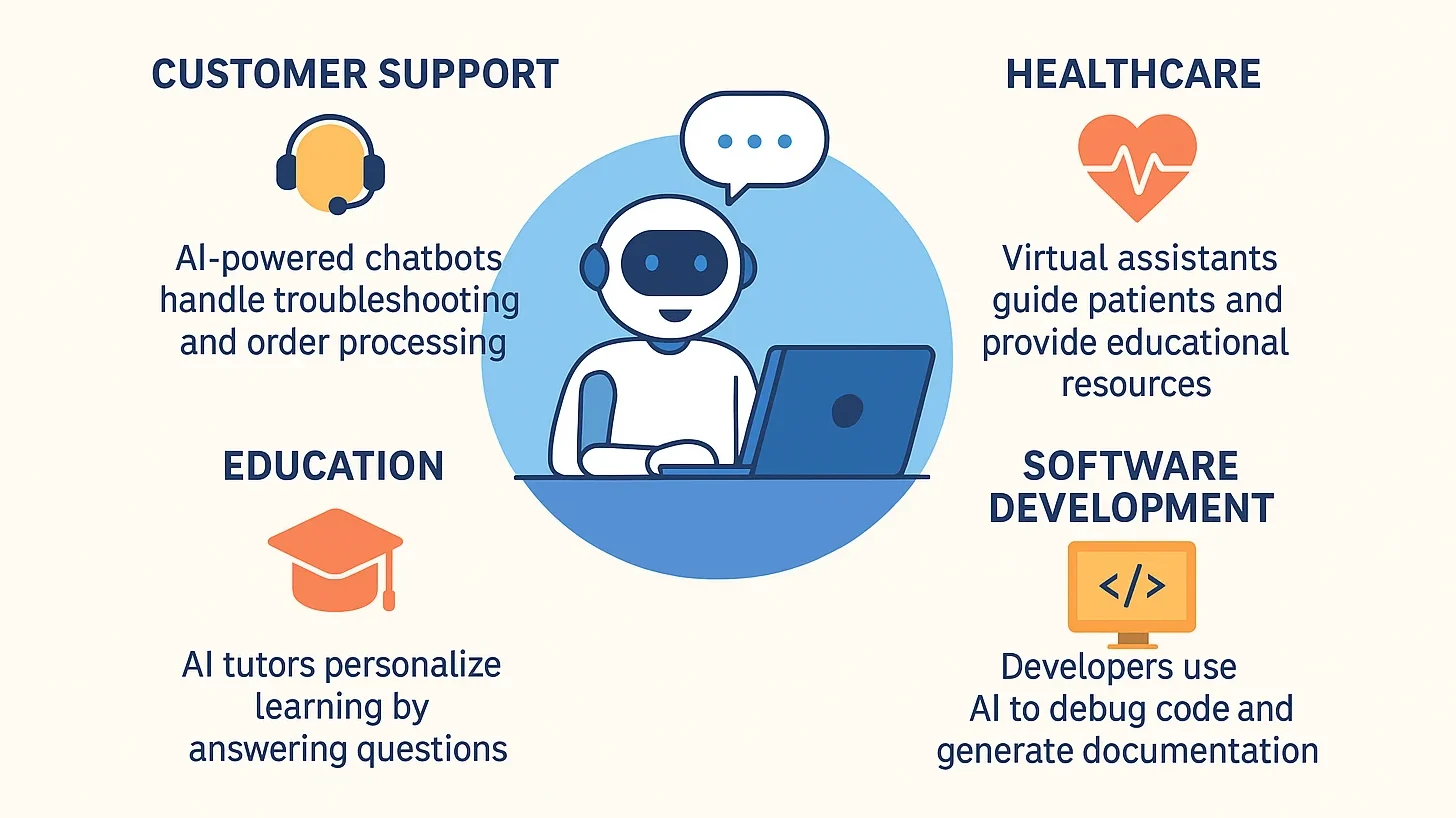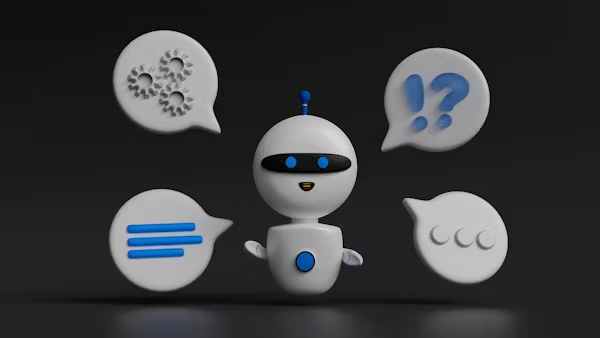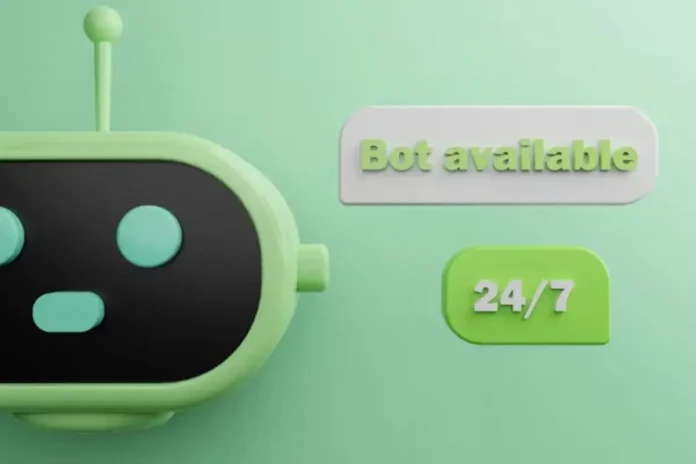AI is no longer the future; it’s just the way we live today. From voice assistants in smartphones to predictive analytics in business software, AI is everywhere in modern tech. And one of the most game-changing things it’s brought us is conversational AI, a branch of AI developed to understand and create human language.
Large language models (LLMs), like OpenAI’s ChatGPT, have stormed into the global spotlight, demonstrating the capabilities of natural language processing (NLP) at scale. They’re also not just boosting efficiency; they’re redefining the scope of human interaction with technology.
Table of contents
The Rise of Conversational AI in Business and Beyond

Chatbots, particularly in their early days, were usually relatively restricted, giving only predefined responses to specific questions. Nowadays, conversational AI has evolved to a level where it can engage in nuanced chats, deliver insightful insights, and even react to someone’s tone or context.
They are some of the earliest adopters, too, incorporating conversational AI in customer service, marketing, and operations. A few notable applications include:
- Customer Support: AI-powered chatbots now handle everything from troubleshooting technical issues to processing orders, reducing wait times, and improving customer satisfaction.
- Healthcare: Virtual assistants guide patients through symptom checkers, help schedule appointments, and provide educational resources.
- Education: AI tutors personalize learning by answering student questions, creating practice tests, and explaining complex concepts.
- Software Development: Developers leverage conversational AI to debug code, generate documentation, and speed up workflows.
- Creative Workflows: Writers, marketers, and content creators use AI to brainstorm ideas, draft text, and refine their messaging.
This versatility makes conversational AI one of the most valuable tools in today’s digital ecosystem.
Why Accessibility is Crucial

With AI’s significance on the rise, it becomes increasingly crucial. Although most sites do have some pretty cool AI functionality, many of them hide it all behind paywalls and memberships. Such skepticism can create frustration among students, freelancers, and small companies who have the most to gain from AI-powered productivity tools.
That’s why services offering Free ChatGPT access are spreading like wildfire. By taking cost off the table, these services allow for more extensive experimentation and creativity. With no upfront cost, students and researchers can leverage AI in their work, entrepreneurs can sharpen their pitches, and creative types can fast-track brainstorming.
AI for all empowers the individual and benefits the greater tech world. The more minds that can access AI, the more rapidly society can test, tune, and improve its applications.
The Future of Human-AI Collaboration
Looking ahead, conversational AI is expected to grow more sophisticated in several key ways:
- Contextual Understanding: Future models will move beyond single-session responses, remembering past interactions and adapting to user preferences.
- Specialization: AI assistants will increasingly be tailored for specific industries, offering expertise in fields like medicine, law, or finance.
- Integration: Conversational AI will become a standard feature embedded in productivity software, smart devices, and enterprise platforms.
- Ethical Safeguards: As AI becomes more widespread, ensuring transparency, data privacy, and responsible usage will remain central concerns.
These advancements will shape a future where humans and AI collaborate seamlessly, each enhancing the other’s strengths.
Final Thoughts
If they did, then consider that conversational AI has already proven itself as a miracle tool for information input, as well as for creativity and problem-solving. Moreover, its application in sectors like health, education, and business demonstrates the potential impact of efficient innovation it could create.
Looking ahead, what will characterize the next phase of AI adoption is access. For instance, platforms such as GPT Gate, which offer free access to advanced conversational AI, are helping to level the playing field and ensure that ultra-powerful tools are not just the preserve of those who can pay for them.
As a result, as AI develops further, the partnership between human and machine will empower change and drive even more profound and impactful transformation. Ultimately, conversational AI is not just influencing how we use technology today; instead, it’s also paving the way for the future of how we will innovate.











